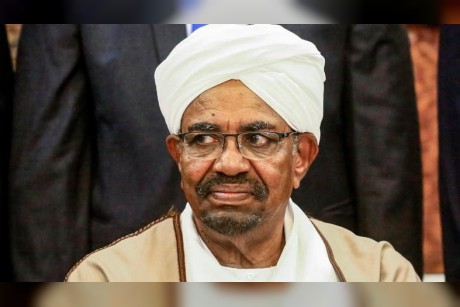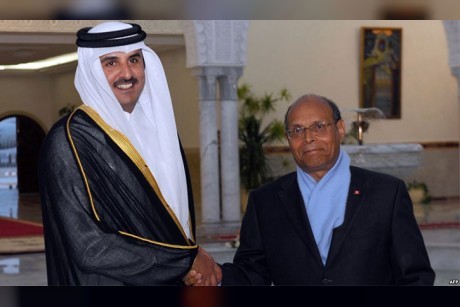President Omar al-Bashir’s final hours reveal how his close ties with Qatar played a decisive role in why the ousted president was becoming increasingly alienated in the Middle East in the lead up to his downfall.
The night before ousted President Omar al-Bashir was removed from power, Sudan’s intelligence chief Salah Abdallah Gosh had reassured the former leader that the protests outside the Defense Ministry would be crushed, according to a Reuters report.
But when Sudan’s then-leader awoke early on April 11, his palace guards where gone and replaced with army officers who were waiting to take him to the Kobar prison in Khartoum where he remains.
At Kobar prison, al-Bashir is awaiting trial for the killings of demonstrators during the anti-regime protests that led to his removal from power.
Al-Bashir had long considered Iran and Qatar close allies. However, in 2014, he began to respond to the UAE’s moves to counter extremist groups in the region, including the Muslim Brotherhood. In 2014, Sudanese authorities ordered the closure of Iranian cultural centre in the capital Khartoum.
From 2014 until the Qatar boycott in the summer of 2017, Al-Bashir sought closer ties with the UAE and Saudi Arabia.
In February 2017, al-Bashir met with Abu Dhabi Crown Prince and Deputy Supreme Commander of UAE Armed Forces Sheikh Mohammed bin Zayed Al Nahyan to discuss plans to counter extremism in the region. According to media reports, between March 2017 and March 2018, the UAE donated $7.6 billion in aid to Sudan’s central bank through the Abu Dhabi Fund for Development and private investments. According to a Reuters report, al-Bashir had promised the Abu Dhabi Crown Prince that he would reject the influence of extremists.
However, al-Bashir refused to join Saudi Arabia, the UAE, Bahrain, and Egypt in severing ties with Qatar in June 2017 for threatening stability and security in the region, undermining their sovereignty, and embracing various terrorist and sectarian groups.
The Eritrean government released a statement accusing Qatar of funding extremist groups in Sudan.
In what was his first trip abroad since the anti-government demonstrations broke out, al-Bashir arrived in Qatar in January 2019 to discuss “bilateral relations,” SUNA, Sudan’s state news agency, reported. The then-ousted Sudanese leader then met with senior officials in Qatar, including its ruler Emir Sheikh Tamim bin Hamad al-Thani.
Following al-Bashir’s removal from power, Sudanese authorities cut ties with Qatar in a long-awaited move by opposition leaders.



